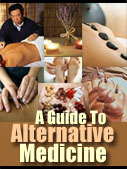Herbal Teas
Herbal Teas
Herbal teas have been used through out the centuries for relieving
pain and soothing away stress. They are also used for entertainment and social functions as
well, but we are going to focus on the use of herbal teas for the relief of various
ailments.
Please do not attempt to grow your own herbs for remedy teas
unless you have taken a class to learn how to do so. Some herbs are poisonous until cooked,
some are poisonous after being cooked, and most just won't be strong enough to make any
difference, because of soil conditions.
I do not like herbal teas. I never drink it, herbal or otherwise.
This is because I had parents who were very into herbal remedies, and at the slightest hint
of stomach trouble, I would be forced to drink the worst smelling, foulest, vile tasting
herbal teas in the universe.
However, they did work, and so I do recommend herbal teas, just
don't try to make me drink them! While all the other kids were running around with Bactine
and a Band-Aide on their knees, I was forced to hop along with a comfrey poultice tied around
my leg…
Please note that most of these remedies refer to a
tincture rather than a herbal tea. A tincture is thicker than a tea and contains
more of the actual herb, infused in the mixture rather than steeped, as in tea.
Anemia: Boil stinging nettle leaves and drink the
tincture. ( Yum!, no it really does work, but remember that stinging needle leaves HURT if
they're not boiled, so wear gloves when handling them.)
Arthritis: Birch, celery seed, devils claw, or
juniper made into a tincture will help alleviate pain. Yes, it tastes as bad as it sounds,
and it's not the celery seed you have in your cooking cupboard.
Siberian ginseng: Root tincture helps with the
side effects of chemotherapy and is one of the tinctures which taste good. It sooths the
insides and helps keep skin healthy. It has been found to alleviate fatigue associated with
chemo treatment, and the ginseng is an ancient herb used in healing.
For a colicky baby, make a tincture of fennel and
dill, and add 5-10 drops to their bottle. Fennel tastes like licorice and they like it. You
can keep this tincture stored in the fridge for up to a week.
A liter of rhubarb root a day will help with
constipation, but I think it has as much to do with the water intake as I do with the
rhubarb. ( just a thought.)
Herbal teas made from garlic bulbs and ribwort
leaves will quiet a cough.
Depression: Grind up an entire oat plant, root to
tip, and add St. John's wart flowers. Boil in just enough water to cover the mixture, and let
it steep down to a tincture, drink daily.
A very hot herbal tea of lemon balm, yarrow, and
ginger will take down a fever and is palatable.
Caraway, fennel, ginger, and peppermint made into
a strong herbal tea will ease flatulence.
Catnip, Echinacea, and yarrow made into a
tincture will ease flu symptoms.
The list goes on and on. You can also use herbs for creating your
own lip balms, creams, and ointments.
Most herb stores or family co ops have classes were you can learn
to make all of your own herbal remedies, make up, balms and ointments for unique gifts or
instant pain and fever relief.
Herbs have been around since the beginning of time-learning how to
use them properly herbal teas could save you lots of money on doctor bills and over the
counter medications.
|























